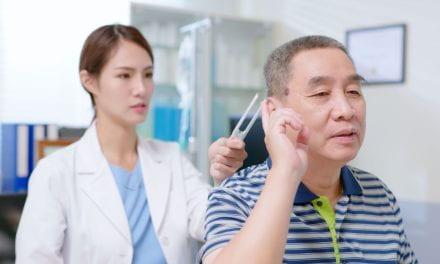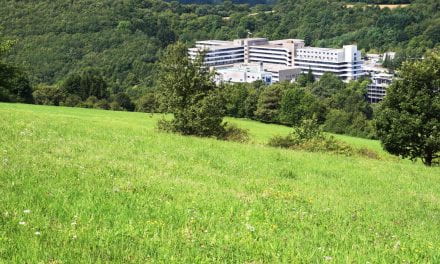Supporting rural hospitals
The Pennsylvania Office of Rural Health helps rural health care providers help rural Pennsylvania.
Helping Rural Hospitals Thrive
Since 2010, hundreds of rural hospitals have closed across the nation. Health care is complicated across the United States, but rural health care providers face even greater challenges. Rural residents tend to be older, sicker, and poorer than their urban counterparts and have higher rates of Medicare and Medicaid coverage—or lack insurance coverage completely. Additionally, rural hospitals have a much smaller staff to address all the regulations and policies that govern the health care industry.
“The landscape in health care changes daily,” said Murray Fetzer, director of human resources at Penn Highlands Tyrone, a rural Pennsylvania hospital. “Reimbursements, billing, new systems, preventive care, recidivism: there are new developments, best practices, and regulations in these and other areas all the time. To stay relevant and healthy, rural hospitals need to anticipate and adapt rapidly to these changes, and the Pennsylvania Office of Rural Health helps rural hospitals like ours anticipate and adapt.”
The Pennsylvania Office of Rural Health (PORH) provides support to the many rural hospitals that serve the Commonwealth’s 3.4 million rural residents. The mission of PORH is to ‘ensure that rural residents have access to high-quality, affordable health care.’ Since 1991, PORH staff have provided award-winning guidance and support to Pennsylvania’s critical access hospitals and other rural health care facilities and providers.
“
There might not be a hospital in Tyrone today if it were not for the Pennsylvania Office of Rural Health.
— Anna Anna, certified nurse executive and former chief executive officer
Tyrone Hospital, the previous name of Penn Highlands Tyrone
”
Critical health care access for rural Pennsylvania
In 1997, the United States Congress created the critical access hospital designation in response to the more than 400 rural hospitals in the United States that closed during the 1980s and ‘90s. The critical access hospital designation provides support for the financial health of rural hospitals so that rural residents retain access to high-quality, local health care.
To qualify for critical access hospital designation, hospitals must meet specific criteria, including being located in a federally designated rural area, having 25 or fewer acute inpatient beds, providing 24-hour emergency care, and typically being located more than 35 miles from another hospital.
Rural residents who live near health care facilities are more likely to receive health care and live healthier lives. Critical access hospitals, however, not only support the health of community members—they support the health of communities.
Critical access hospitals create high-paying, professional jobs that disappear when hospitals close. Additionally, studies have shown that companies are less likely to make investments in communities where their workers cannot access the health care they will need. For many rural communities, a local hospital can be the difference between economic life and death. Every day, PORH staff focus on ensuring that Pennsylvania’s rural hospitals survive and thrive so that rural Pennsylvanians and their communities can flourish.
Hospitals: Critical for rural Pennsylvania
In every county, and especially in rural counties, a successful hospital is essential to a vibrant community. Health care ranks as one of the top economic and community drivers, along with education and government. In fact, every health care dollar spent in a rural community “rolls over” as those dollars are re-spent on local goods and services, contributing to the economic health of the area.
Rural hospitals are the hub of health care and deliver traditional hospital services, such as emergency care, inpatient care, and laboratory testing. Many also provide primary care and rehabilitation support and operate what may be the only long-term-care facility in a county. The health of patients rebounds more quickly when they get care from those who know them and have contact with their family and friends. The closing of a rural hospital can devastate a community, eroding community morale and hollowing out the economic base as current and new businesses relocate to areas with robust health care. Worse still, residents are forced to travel long distances for care and may delay or forgo care altogether. Lack of local emergency and inpatient hospital care can lead to increases in acute and chronic illness and potentially, death.
Expert support in difficult times
“There might not be a hospital in Tyrone today if it were not for the Pennsylvania Office of Rural Health,” said Anna Anna, certified nurse executive and former chief executive officer of Tyrone Hospital, the previous name of Penn Highlands Tyrone.
In 2019, Anna assumed the role of chief executive officer at Tyrone Hospital, a critical access hospital. At the time, the hospital was independent, and its financial situation was, according to Anna, ‘dire.’ Anna and the hospital’s board of directors knew that they would have to join a larger health care provider if the hospital was going to survive.
The staff at PORH, according to Anna, understood the hospital’s struggles. PORH staff connected Tyrone with experts so the hospital could identify a partner, negotiate a deal, and join a larger health care system.
“If it were not for that assistance, it would have prolonged the merger process, and I do not know what the outcome would have been,” Anna remembers. The hospital then joined Penn Highlands Healthcare, which led to the facility’s new name and its continued operation.
“
Pennsylvania Office of Rural Health is phenomenal. They are our eyes and ears for everything going on in rural healthcare.
— Murray Fetzer
Director of Human Resources
Penn Highlands Tyrone
”
Supporting hospitals every day
Despite the ever-changing nature of health care, the relationships between individual hospitals and PORH remains strong. PORH has been collaborating on a variety of initiatives with Penn Highlands Tyrone for more than 20 years.
“Pennsylvania Office of Rural Health is phenomenal,” Fetzer said. “They are our eyes and ears for everything going on in rural healthcare.”
Fetzer went on to say that the hospital and PORH have collaborated to find grants and prepare the types of grant applications that are critical to rural hospitals’ health.
“They are experts at helping hospitals navigate complicated systems, and they have been integral to our success,” Fetzer continued. “They are number one in the country, and we are very fortunate to have the opportunity to work with them.” Editor’s note: PORH received the National Organization of State Offices of Rural Health State Office of Rural Health Award of Excellence in 2020.
PORH is a collaboration between the federal government, the Commonwealth of Pennsylvania, and Penn State. PORH is housed in the College of Health and Human Development’s Department of Health Policy and Administration.
PORH supports rural health and rural communities
For more than 30 years, the Pennsylvania Office of Rural Health (PORH) has championed equity in, and access to, quality health care for Pennsylvania’s rural residents. One of 50 state offices of rural health in the nation, PORH serves as a source of technical assistance on funding opportunities, regulatory compliance, partnership development, networking, and advocacy to advance rural health access.
PORH’s expertise includes:
- rural health
- agricultural health and safety
- oral health
- population health
- quality improvement
- partnership development
- rural health advocacy
- community and economic development
PORH provides rural health care providers with information on funding opportunities, project development, grant reviews, best practices, referrals, and more. Continuing education programs bring together advocates from across the state to focus on health care transformation, quality improvement, rural health policy, public health, and rural human trafficking.
Aaron Wagner | Author
Photo Credits
Header video: image(s) by 1. Filippo Carlot, 2. Alex Potemkin, 3. lbeaumont, 4. Alex Potemkin, 5. Alex Potemkin and 6. photovs via Getty Images; video compiled by Dennis Maney
Hospitals: Critical for rural Pennsylvania sidebar: photo by Tongshan via Getty Images
PORH Supports rural health and rural communities Sidebar: photo by Dean_Fikar via Getty Images




